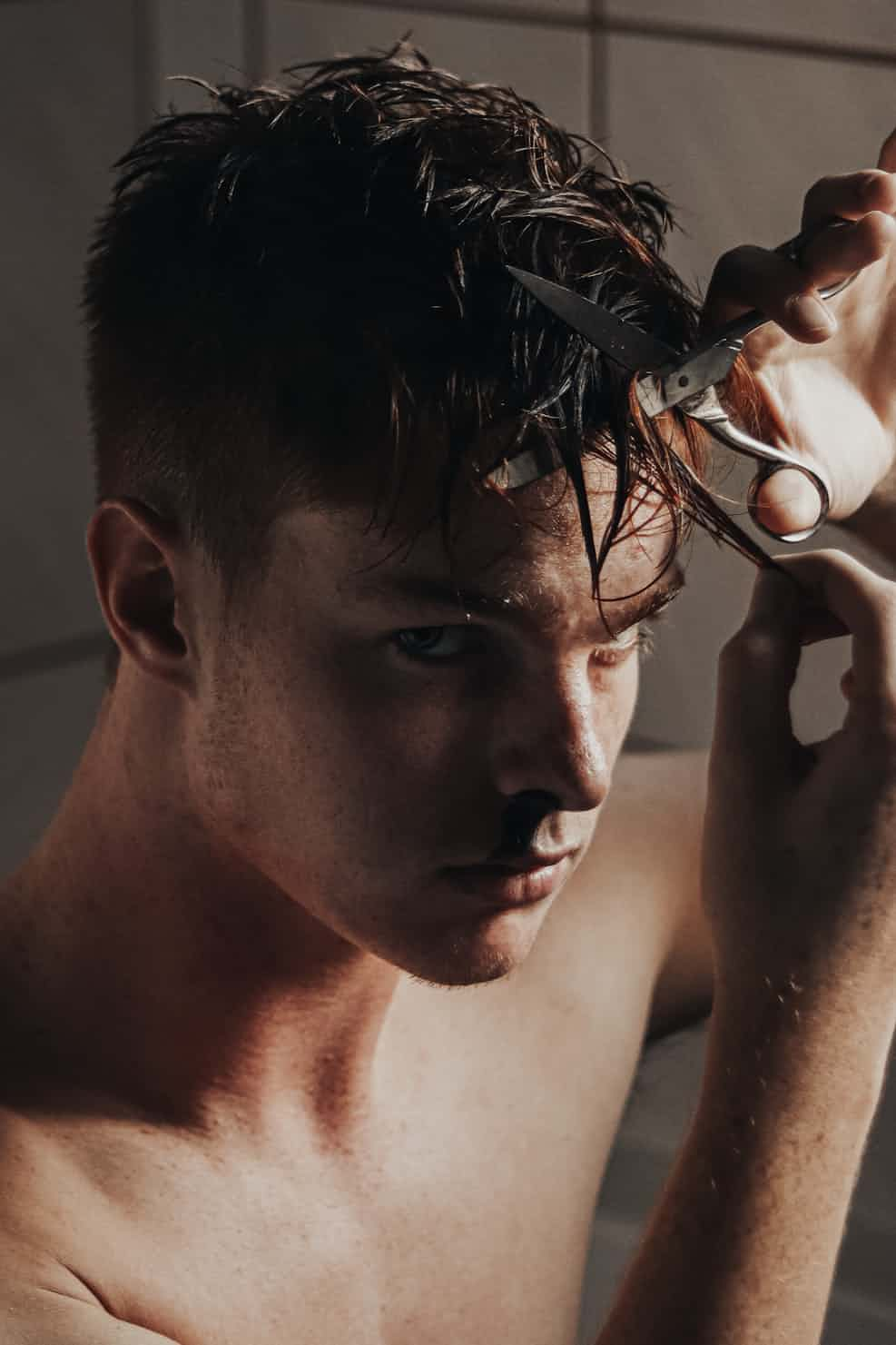Why does my hair fall out in the shower?
Not sure what beard style to choose for your bald head? We explain what style to choose based on your look.

There are a few possible explanations if you are losing hair in the shower.
Before you become too concerned, you should know that it's natural for healthy hair to shed at different times throughout its growth cycle. Shedding is also known as telogen effluvium, meaning your scalp has more active follicles than usual and is thinning more than usual.
In this article, we'll discuss what causes shedding in men and women during the shower, using simple examples from everyday life to help illustrate these concepts.
There are times of the year when hair shedding is quite normal, such as during seasons of rapid weight loss or after pregnancy. This is because your body goes through many changes that affect your hair's health and volume.
However, it's essential to remember that many factors can cause hair loss, and it doesn't mean you're affected by MBP, i.e. that your hairloss is genetic (and in most cases, inevitable). Consult a medical professional if you notice more than a few hairs in your shower drain or floor while styling your hail.
Unerstanding the hair's lifecycle
The cycle has three phases; your hair can be in any phase at any time:
- The anagen phase is the growth phase, where your hair grows 1 centimeter per month.
- Anagen is followed by a transition phase called catagen, which lasts about two weeks. During this time, the hair's root shrinks and grows less. This is followed by a resting phase called telogen, which lasts two to four months.
- The final stage of this cycle is exogen which means that your hair falls out, and new growth pushes older strands from their follicles.
While many factors cause hair loss, it is essential to understand the basics of hair growth and learn how to identify new hair loss patterns.
Hair growth and loss are controlled by hormones and influenced by stress, illness, diet, and lifestyle choices. Hair growth depends on a three-phase process involving anagen (growth), catagen (transitional), and telogen (resting).
Each phase varies from person to person but typically lasts about 3 months before moving into the next step. The time spent in these phases will also vary depending on genetics and lifestyle choices such as diet and stress levels.
Anagen
The hair follicle is in the anagen phase, which means that the hair is actively growing. Hair grows approximately 1 cm per month and can do so for three to five years (the average human loses 100-150 strands of hair per day).
Catagen
The telogen phase is the resting period of your hair growth cycle. It's when you shed about 100 hairs per day, and it's completely normal. In fact, we all shed between 50 and 150 hairs each day—about 10% of our total hair count!
However, shedding that many strands can sometimes cause concern for people who are experiencing something called "telogen effluvium." Telogen effluvium occurs when there is an abnormal amount of shedding during this resting phase, which can trigger breakage or hair loss if left untreated.
Telogen
Telogen is the resting phase of your hair cycle. This phase lasts for about 100 days, during which time your hair is not shed and does not grow. When telogen ends, a new anagen phase begins, and you'll start to see some new growth on your scalp.
While it's normal for some shedding to happen throughout the month (particularly at the roots) if you're seeing more than 10-15 strands of hair coming out each time you shampoo or brush it may be time to talk to a doctor about why this is happening.
Why does hair fall in the shower?
Hair loss is widespread in men and women and is caused by many factors, including hormonal changes, aging, stress, medications, etc.
Hair falling out in the shower is often not a cause for concern unless it continues daily for weeks.
Generally speaking, it's natural that hair falls in the shower. However, if you notice more hair coming out than usual or if you have bald patches on your scalp that only appear after washing your hair, then visit a dermatologist as soon as possible. The doctor will examine your scalp and check for any signs of alopecia - when the body stops producing enough new hair follicles each day.
If it turns out that there aren't any problems with your head's health — that is, you're not going bald because of genetics or stress—the dermatologist will be able to tell by looking at the shape of the remaining follicles.
Conclusion
If you are concerned about your hair falling out in the shower, there is no need to panic.
Having said that, if the fall is excessive and you can see bald patches when your hair is wet, it would be advisable to see a doctor.
Remember that none of this website's content is medical advice: always consult a specialist before taking any decision about your health.


